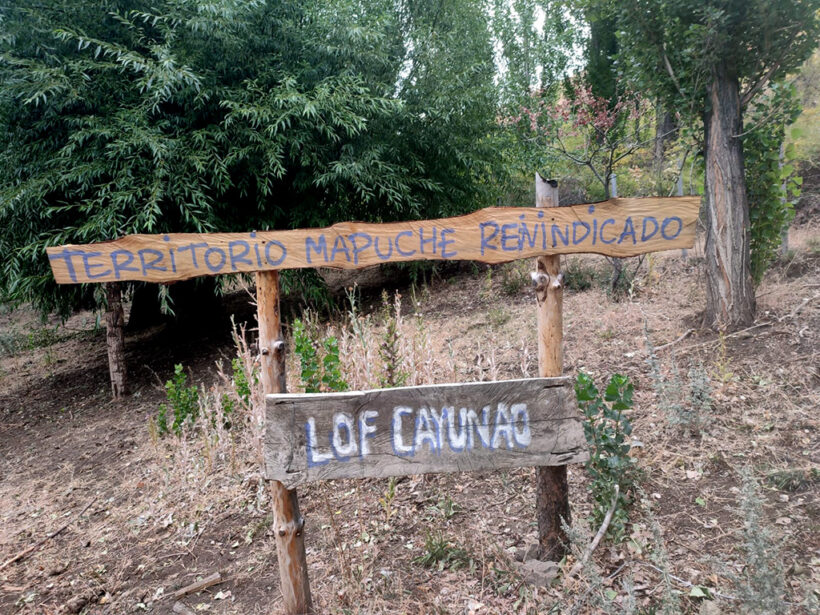Since 1994, the Argentinean Constitution recognizes that the indigenous peoples that inhabit the country pre-exist the National State and therefore have the right to the possession and ownership of the lands they traditionally occupy. After almost 30 years, this right has not been enforced. On the contrary, many native communities have been expelled from their territories while the State itself, government after government, sells them to national and foreign companies engaged in extractivism, forestry and monoculture exploitation, real estate and tourism. Many communities have made their claims through legal means. Others have initiated direct recovery processes, settling in the territories that belong to them and have been denied to them. This is how many Mapuche communities in Patagonia have been acting. This is the case of the Cayunao lof (community), which is claiming land given to a service cooperative and other lands where the headwaters of an important river in the area (the Chubut River) are located and which have allegedly been sold to front men of foreign potentates.
The following is a statement released yesterday by the lof Cayunao, updating the measures they have decided to take to continue their struggle.
Mari Mari Machi, Mari Mari pu lonko, Mari Mari pu pillan cushe, Mari Mari pu peñi la pu lagmien. (Greeting in mpaudungun)
Today March 12, 2023, we, several Lofche (communities) gathered in trawn (assembly), in the territory of the Lofche Cayunao, express:
The national and provincial State is responsible for territorial conflicts, for the defense of nature, water and sane territories. Defense that is carried out by native peoples and part of society, who defend a sane relationship with these forces and spaces.
It is the State that allowed, permits and openly hands over territories and resources to foreign capitals. Benneton, Lewis, Qataries, foreigners receive more and more favors from the Argentinean State and its provincial leaders. They receive permission to settle in territories abundant in natural wealth, they receive political support and the support of the armed forces, police and gendarmerie to protect their interests, they receive the ineffectiveness of the judicial system, which allows the systematic violation of Argentine laws that supposedly protect us, protect nature and the good living of our daughters, sons, granddaughters and grandchildren.
Foreigners settle in droves in the territories, they change the names of the foreign expropriator, but they remain in hands alien to the preservation of these places. This is the case of the territorial claim to COOPETEL by the Lofche Cayunao, where the State hands over territory to national or provincial organizations, which are highly extractivist and harmful to the natural balance.
We demand that the national and provincial governments take responsibility and provide solutions in favor of the Mapuche people, the Argentinean laws and international treaties on the protection and defense of the territories in Patagonia.
In action for this situation, pu Lofche (the communities) will organize in trawn to continue resisting this abuse and seeking solutions. Pu Lofche we declare ourselves in permanent trawn for this defense.
The lof Cayunao will continue with the territorial control in the summer pasture area where the expropriator is advancing, requesting to continue with the state of alert on the part of the Mapuche people and society in general, as well as to continue requesting the self-managed organization and the accompaniment of the Lof.
We invite the Mapuche people to the next trawn, to be held in the Lofche Quemquemtrew on April 8 and 9.
Freedom for the Mapuche political prisoners!
Freedom for the Machi Betiana Coluan Nawel and its speedy return to her rewe!!
Marichiweu, marichiweu!!
Lof Cayunao, Lof Quemquemtrew, Lof Fem Mapu Puerto Santa Cruz, Lof Buchile Oyarzo Calfu comunidad Las Waitekas, Lof Calfu Lafken ( Lago Rosario), pu peñi ka pu lagmien Epuyen, Villa la Angostura, Cholila, Lago Puelo, y Las golondrinas.
Translated from Spanish by David Meléndez Tormen










